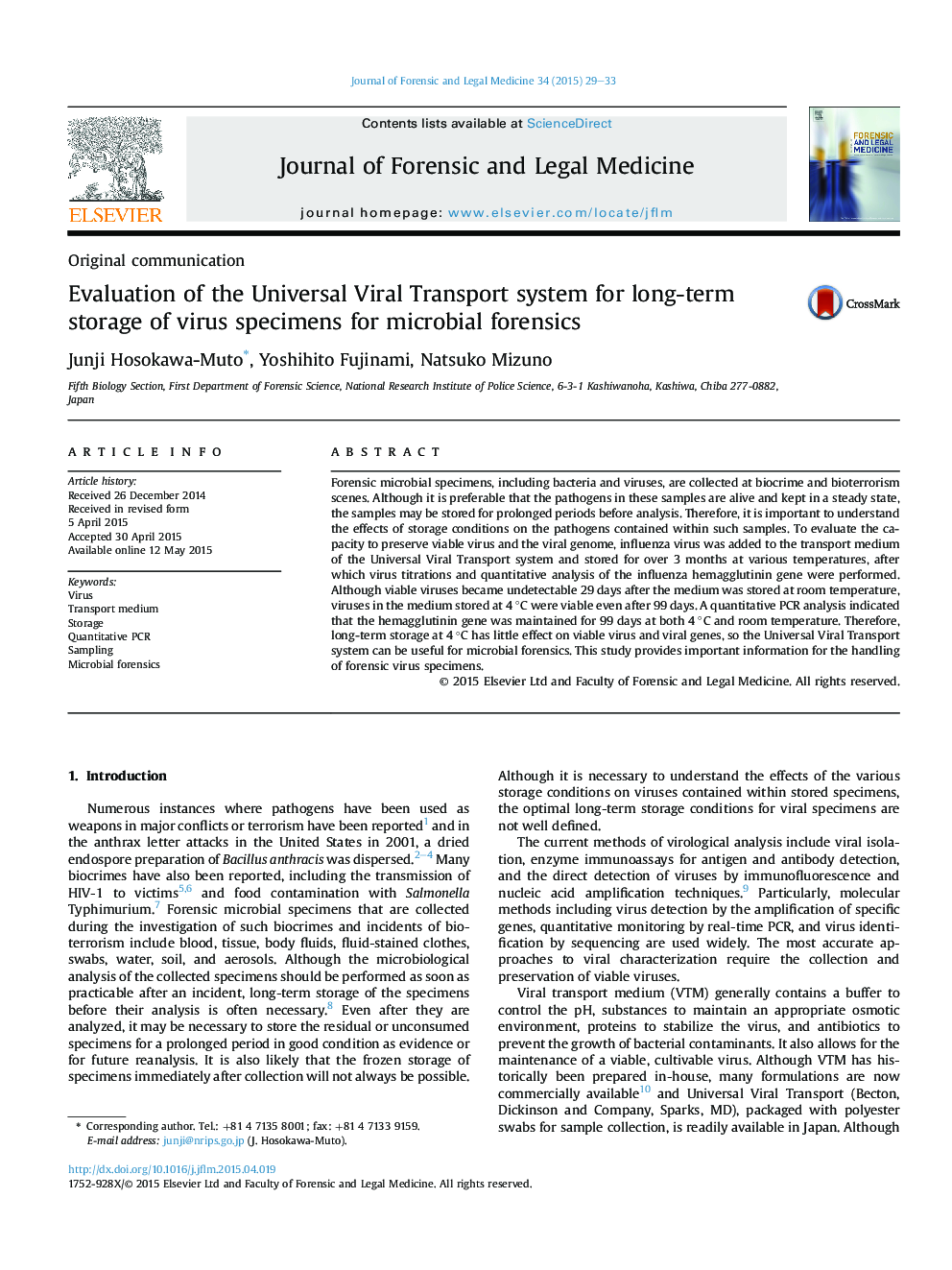| کد مقاله | کد نشریه | سال انتشار | مقاله انگلیسی | نسخه تمام متن |
|---|---|---|---|---|
| 101858 | 161298 | 2015 | 5 صفحه PDF | دانلود رایگان |
• The effects of long-term storage on viable viruses and viral genomes were examined.
• The Universal Viral Transport system was used for the storage of virus samples.
• Long-term storage at 4 °C had scant effect on the viable virus and the viral genome.
• Viable virus was recovered from the surface of inert materials using this system.
• This system is useful for the handling of forensic virus samples.
Forensic microbial specimens, including bacteria and viruses, are collected at biocrime and bioterrorism scenes. Although it is preferable that the pathogens in these samples are alive and kept in a steady state, the samples may be stored for prolonged periods before analysis. Therefore, it is important to understand the effects of storage conditions on the pathogens contained within such samples. To evaluate the capacity to preserve viable virus and the viral genome, influenza virus was added to the transport medium of the Universal Viral Transport system and stored for over 3 months at various temperatures, after which virus titrations and quantitative analysis of the influenza hemagglutinin gene were performed. Although viable viruses became undetectable 29 days after the medium was stored at room temperature, viruses in the medium stored at 4 °C were viable even after 99 days. A quantitative PCR analysis indicated that the hemagglutinin gene was maintained for 99 days at both 4 °C and room temperature. Therefore, long-term storage at 4 °C has little effect on viable virus and viral genes, so the Universal Viral Transport system can be useful for microbial forensics. This study provides important information for the handling of forensic virus specimens.
Journal: Journal of Forensic and Legal Medicine - Volume 34, August 2015, Pages 29–33
